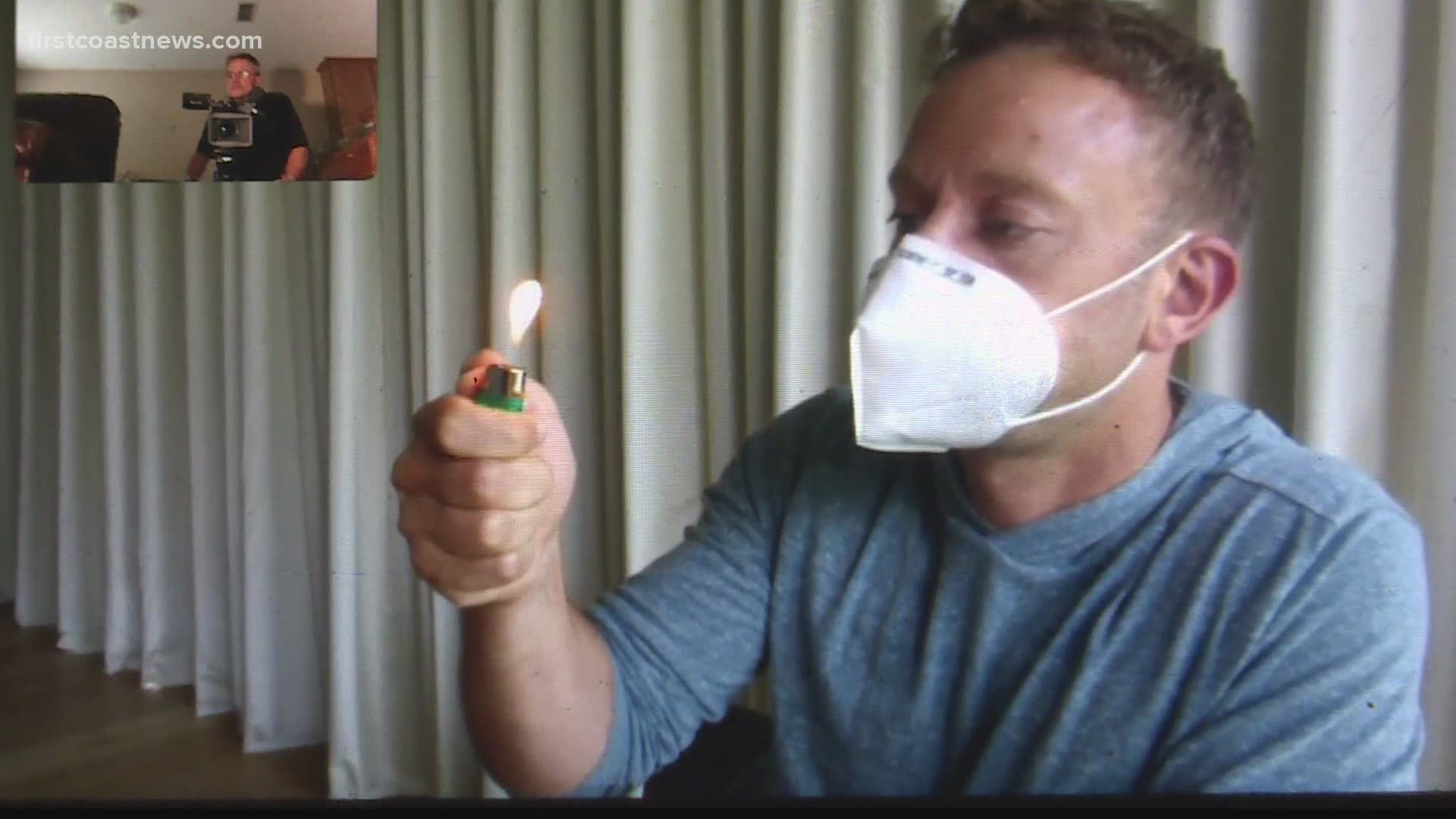JACKSONVILLE, Fla. — You might be required to wear a face mask in public, depending on where you live, so you might as well wear one that actually protects you from COVID-19.
“Will a four-layer T-shirt mask do something? Absolutely,” said Leo Friedman, CEO and founder of Chicago-based iPromo.com, which sells face masks and other protective gear among other products.
Even the surgeon general has a video linked to the CDC website demonstrating that masks can be made from tee shirts, scarves, bandanas and hand towels.
But Friedman is skeptical.
“The majority of the time (a homemade mask) does not have the protection you need,” he asserted in a video interview with First Coast News on Tuesday, a day after a mask mandate took effect in Duval County.
Although not a doctor, Friedman demonstrated a two-step process he uses to determine whether a mask will be effective in preventing a person from receiving or transmitting coronavirus.
“It’s a super-simple test. You can do both tests in under 30 seconds,” he said.
First, Friedman placed a mask over his face and held a lighter about a foot in front of his face.
“You should not be able to blow it out,” he claimed. The second step was to pour liquid – Friedman used seltzer water in his example – into the mask.
“Nothing should drip through. If anything drips through, that means water particles can get through anyways.”
Friedman reasoned that COVID-19 transmits often via tiny liquid droplets in the breath. Given his assertions, it becomes understandable why a T-shirt might not pass the test. But in Surgeon General Dr. Jerome Adams’ example, he folded the shirt into quadruple layers.
“One of the things that (the CDC) mentions is using tightly-woven fabric and using multiple layers of it,” Dr. Tiffany Wells, OB-GYN said in an interview, also Tuesday.
That doesn’t mean Wells appeared to discredit the spirit of Friedman’s demonstration.
“I think what (Friedman) is describing actually is a visual representation of that that tightly-woven fabric shouldn’t allow much air to pass through - to blow out a lighter, or to let water kind of seep through very quickly,” Wells said. “I think if it’s not going to be as tightly woven fabric, then having the multiple layers is going to be very important to reduce the droplet spread.”
Asked how people can additionally make homemade masks more effective, Wells, who practices in Jacksonville, emphasized wearing in a way that covers the face properly but also comfortably.
“If you’re constantly having to touch it and re-arrange it, you’re doing exactly what we don’t want you to do when you wear a mask, which is touch it all the time,” she said.
She added that it helps to have multiple face masks to rotate because it’s imperative that they are washed and dried at high temperatures after each use.
“The nice thing about the homemade masks, the cloth masks, is that you can just wash them," she said. 'So it does reduce the throwing out of the materials.”
Although part of his business is selling his masks, which he said are equivalent to N-95 surgical-grade, Friedman said his underlying priority is to encourage health and hygiene at a time when both are in peril.
“You can’t control others wearing masks, but you can control the quality of your mask,” he said.
To view the surgeon general’s video explaining how to make a mask, click here.
For information about COVID-19 from the Centers for Disease Control, click here.

